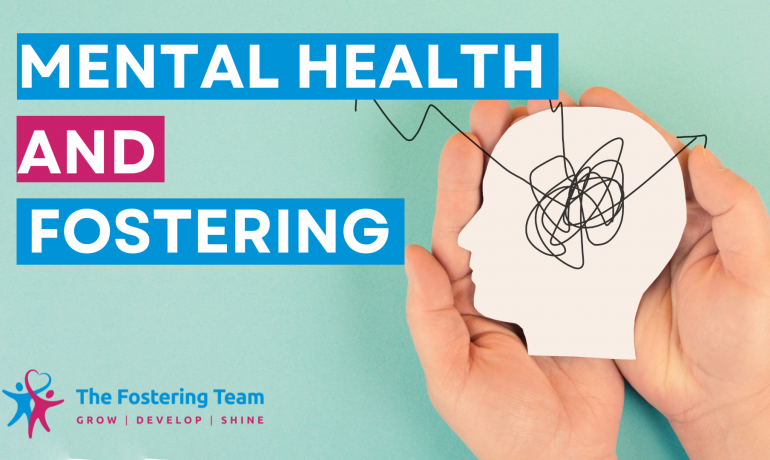FF blog 10: Top 10 Foster Carer Myths Dispelled
There are a lot of misconceptions about what becoming a Foster Carer actually involves, and you wouldn’t be the first person to be put off by foster caring myths.
There are a lot of questions surrounding fostering, partly because so many people are unaware of the facts, and yet, the demand for foster placements for children and young people is certainty not reducing.
It’s true, fostering isn’t something you would undertake without a lot of thought. And you’ve probably heard all the clichés about being a Foster Carer:
- It’s a big commitment
- It’s a huge responsibility
- It will change your everyday life
If you’ve considered becoming a Foster Carer, what stops you from making an enquiry?
All too often, people self-disqualify themselves from making changes in their lives. The reason for clinging to an unsatisfying status quo can range from fear of change to false myths in their ability to undertake a new venture, to simple misinformation. This applies to every aspect of life, including fostering.
So here’s a quick guide to the reality of fostering and who can become a Foster carer – our top 10 myths about fostering dispelled:
- I’m single, so I can’t be a Foster Carer
Foster Carers are not required to be married or be in a relationship. More importantly is a strong desire to look after children and young people and help them work toward a brighter future. Patience, a caring heart, a sense of humour, and plenty of energy, are all important attributes to be a Foster Carer.
- I don’t own a home, so I can’t be a Foster Carer
As long as you have a spare bedroom for the foster child, with enough space for a bed, chest of drawers, and perhaps a desk, you can rent your home as a private tenant, be a local authority tenant or an owner-occupier with a mortgage to apply to become a Foster Carer.
- I’d like to foster but I’m gay
Being gay doesn’t disqualify you from fostering. Single gay and lesbian couples are encouraged to become Foster Carers. The focus is on the child’s sense of security and the foster home’s caring and safe environment.
- I can’t afford to foster
As a Foster Carer, you will receive weekly payments, paid holiday allowance, generous tax allowances, and paid respite care each year. Our support network is designed so anyone committed and willing certainly can afford to foster a child or young person.
- I’m too old to foster
At The Fostering Team, we have a lower age limit of 21 but that is mostly about maturity. There is no upper age limit. As long as you are in good health, mentally and physically fit, and have a high energy level, age brings maturity and experience, both very positive Foster Carer attributes.
- I have a baby, so I can’t foster
When you apply to become a Foster Carer with us, your current situation is discussed and assessed. A new baby in your household will bring many changes but these changes do not necessarily prevent you from fostering. More importantly is your ability to provide the care that your baby requires and that the foster child needs.
- I have pets, so I can’t become a foster carer
Pets are considered great therapy for children in care so the first response to this myth is, of course you can become a Foster Carer if you have pets. There are however a couple of exceptions which can be discussed with you as part of your Foster Carer application.
- I am disabled so cannot take care of a foster child
While there is an emphasis on good health for Foster Carers, disabilities will not necessarily disqualify you from fostering. If fostering will not put your health at risk, a disability usually does not prevent you from being a Foster Carer.
- I don’t have my own children so don’t have the experience to foster a child
Experience is not required to be a Foster Carer. This does not mean that you don’t have all the necessary mental, physical, and emotional tools necessary to foster a child but moreover, you should have a willingness to care for and support a child along with the ability to make a home where children will feel safe and secure.
- I’m unemployed so can’t foster
Being unemployed means that you are available to care for a child or young person all day, every day. You will be able to attend specialist therapeutic training, meetings, and appointments that involve fostering and the child’s medical, educational, and social needs without having to reschedule prior commitments.
So the morale of the story is don’t count yourself out of fostering purely based on a misconception of who can be a Foster Carer. Fostering is a wonderful experience and is a far more open process than some people frequently believe. If any of the above myths were causing you to doubt your own capability to foster a child, it may be time to reconsider.
Start your Fostering Journey Today
So now you know the facts, if you’ve have been thinking about your first steps to becoming a Foster Carer, start your journey today and find out more about what being a Foster Carer with The Fostering Team involves.

